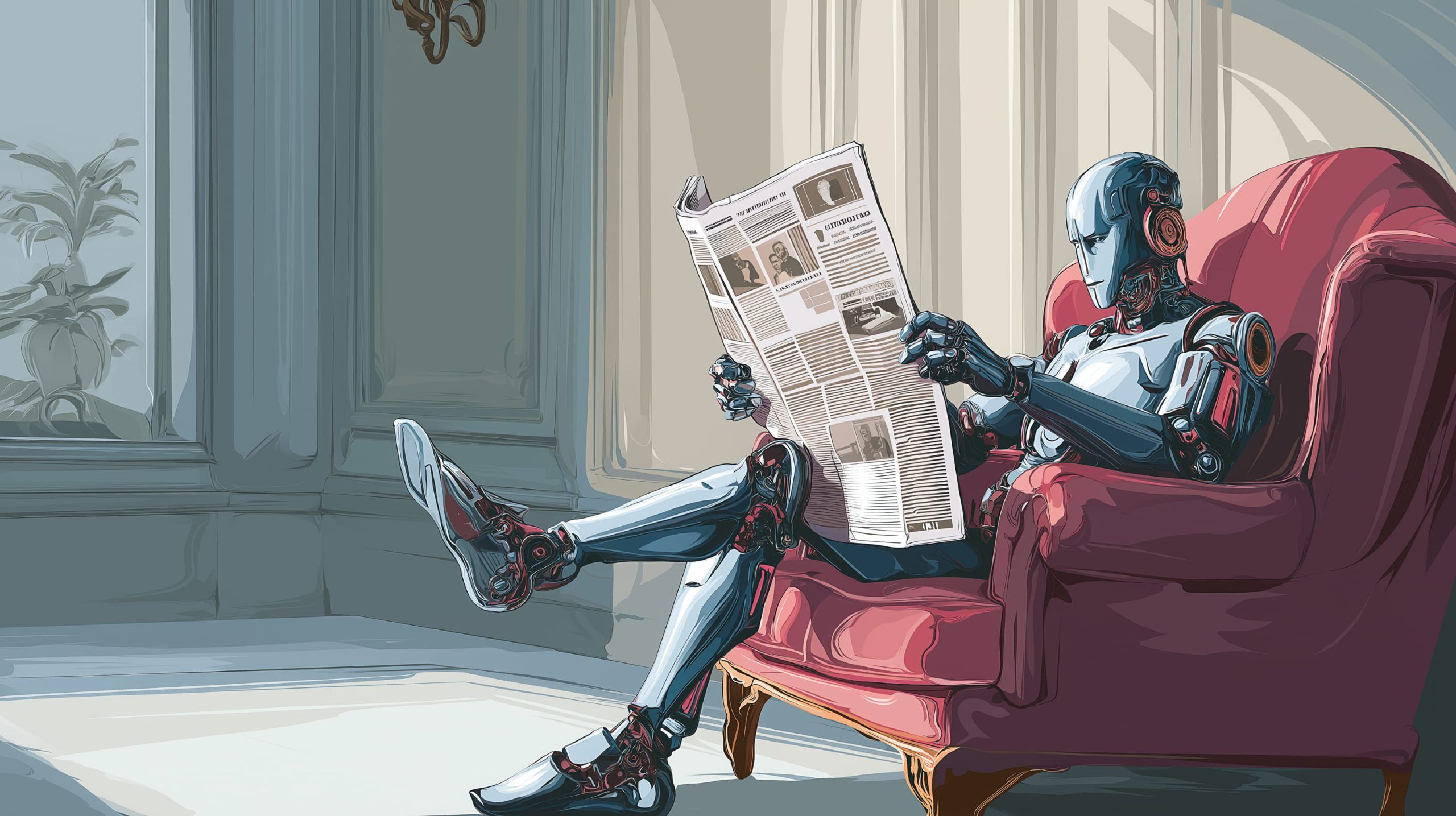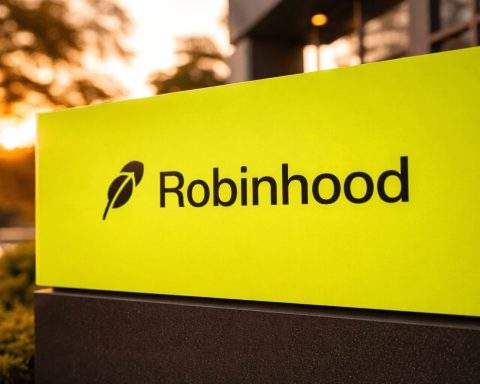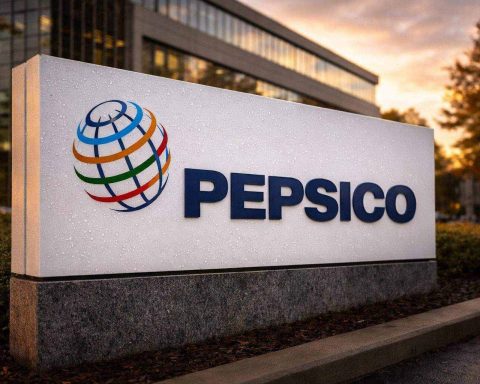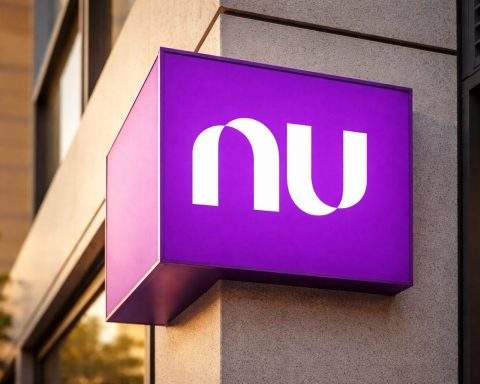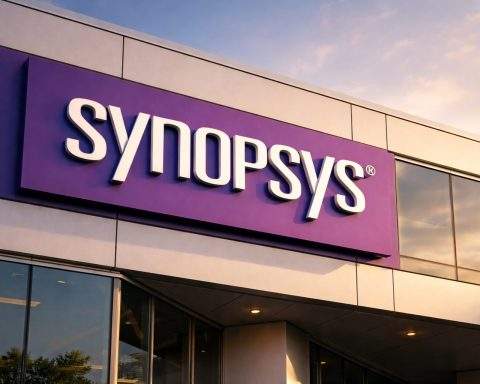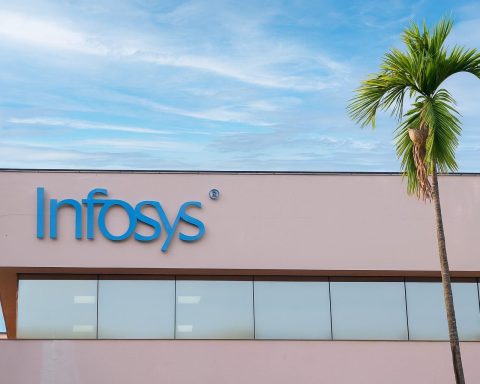Key Facts
- Historic $1.5B AI Copyright Settlement: AI startup Anthropic agreed to pay $1.5 billion to settle authors’ claims it used pirated books to train its chatbot – the largest-ever copyright recovery in AI reuters.com reuters.com. The deal (≈$3,000 per book for 500,000 titles) sends a “powerful message… that taking copyrighted works from pirate websites is wrong,” the authors’ lawyers said reuters.com reuters.com. Anthropic will destroy the illicit data and admitted no wrongdoing reuters.com reuters.com.
- EU Slaps Google with Record Fine: European regulators fined Google €2.95 billion (~$3.5 billion) for abusing its dominance in online ads reuters.com. The EU ordered Google to stop favoring its own ad services and warned of “strong remedies” (even breakups) if it fails to comply reuters.com reuters.com. Google vowed to appeal, calling the penalty “unjustified,” while U.S. President Donald Trump blasted the EU’s action as “unfair” and threatened trade retaliation reuters.com reuters.com.
- U.S. Judge Opens Google’s Data to AI Rivals: In a major antitrust ruling, a federal judge declined to break up Google but ordered it to share its search index and data with competitors to boost search competition reuters.com reuters.com. Judge Amit Mehta noted new AI-driven search tools (e.g. chatbots) pose the first real threat to Google in decades, writing that AI upstarts are “already better placed to compete with Google than any search engine developer has been in decades” reuters.com reuters.com. Google’s stock jumped 7% on relief that it can keep Chrome and Android – though data-sharing could aid rival AI chatbots and browsers going forward reuters.com reuters.com.
- Chip Wars – Nvidia vs. ‘America First’ Law: GPU maker Nvidia slammed a proposed U.S. “GAIN AI” Act – a defense bill add-on forcing AI chipmakers to prioritize domestic orders – as misguided. “In trying to solve a problem that does not exist, the proposed bill would restrict competition worldwide in any industry that uses mainstream chips,” an Nvidia spokesperson warned, adding “we never deprive American customers” to serve others reuters.com reuters.com. The law would require export licenses for high-end AI chips until U.S. demand is met reuters.com reuters.com, mirroring earlier export controls. Nvidia argues it would hurt U.S. tech leadership with little benefit reuters.com.
- China Tightens AI Content Rules:China’s new AI regulation took effect Sept 1, mandating that all AI-generated content – text, images, audio, video, etc. – be clearly labeled both visibly and in metadata scmp.com scmp.com. Major platforms like WeChat and Douyin rolled out tools to tag AI content in compliance scmp.com scmp.com. The law reflects Beijing’s push to curb deepfakes and misinformation by ensuring users know when media is AI-generated scmp.com scmp.com.
- OpenAI’s Big Bets on Jobs & Skills:OpenAI announced an AI-powered hiring platform (OpenAI Jobs) aimed at matching AI-trained talent with employers, directly challenging LinkedIn techcrunch.com techcrunch.com. Launching by mid-2026, it will pair with a new OpenAI Certified program offering free AI skill certifications at multiple “AI fluency” levels techcrunch.com techcrunch.com. OpenAI is partnering with companies like Walmart and working with U.S. states (e.g. Delaware) to roll out these credentials govtech.com govtech.com, with a goal to certify 10 million Americans by 2030 govtech.com govtech.com. Meanwhile, leaked forecasts show OpenAI’s costs skyrocketing – expected to burn through $115 billion by 2029 – as it invests heavily in data centers and custom AI chips ts2.tech ts2.tech.
- Massive Investment in AI Startup: In a push for tech sovereignty, Dutch chip giant ASML invested €1.3 billion (~$1.5 billion) in France’s Mistral AI, making it the startup’s top shareholder reuters.com reuters.com. The funding round values open-model developer Mistral at €10 billion (the highest for any European AI company) reuters.com reuters.com. Observers say teaming Europe’s leading chipmaker with its most ambitious AI lab could help Europe reduce reliance on U.S. and Chinese AI models reuters.com reuters.com.
- AI-Powered Products Proliferate: Tech giants rolled out a blitz of AI features. Google Photos integrated its new Veo 3 AI model to turn still images into video clips, bringing higher-quality “photo-to-video” animation to over a billion users techcrunch.com techcrunch.com. Microsoft gave its Copilot assistant a face and voice via a preview feature called Copilot Appearance, which lets the chatbot respond with realistic facial expressions and gestures indianexpress.com indianexpress.com. Amazon launched “Lens Live,” an AI visual search tool that lets shoppers point their phone camera at real-world objects and instantly find similar products on Amazon techcrunch.com techcrunch.com. Even WordPress introduced an AI website builder that can generate a fully designed website from a simple prompt within minutes wordpress.com wordpress.com.
- NFL’s AI-Generated Spectacle: The NFL kicked off its season with a surreal AI-driven ad campaign titled “You Better Believe.” The high-energy promo features an impossible parade float with flying pigs, dancing mascots and other fantastical scenes for all 32 teams – visuals only made possible by generative AI adweek.com adweek.com. The league’s marketing chief said leaning on AI cut production costs by fivefold and enabled ideas that “would’ve died on arrival” with traditional VFX adweek.com adweek.com. The one-minute spot, set to a remixed 90s song, blends live action with AI-created imagery to celebrate fan culture in an over-the-top way.
- “We’re Playing with Fire,” AI Pioneer Warns:Geoffrey Hinton – the “godfather of AI” and recent Nobel laureate – issued stark warnings about AI’s societal impacts. In a new interview, Hinton cautioned that capitalists will use AI to replace workers, predicting “massive unemployment and a huge rise in profits” for the rich as AI accelerates inequality timesofindia.indiatimes.com. He also estimates a 10–20% chance that AI could eventually threaten humanity’s existence if mismanaged, saying of rapid AI progress: “We don’t know what’s going to happen… We’re playing with fire” timesofindia.indiatimes.com. Hinton urged stronger global regulation before it’s too late, arguing that unchecked AI could “supercharge” wealth gaps and even pose existential risks timesofindia.indiatimes.com timesofindia.indiatimes.com.
Authors vs. AI: Landmark Settlement and New Copyright Battles
After years of tension between creators and AI firms, content owners scored a major victory. Anthropic – maker of the Claude chatbot – agreed to pay $1.5 billion to settle a class-action lawsuit by authors who accused it of illegally downloading millions of pirated books to train AI reuters.com reuters.com. Plaintiffs say it’s the largest copyright payout in U.S. history reuters.com reuters.com, roughly $3,000 per book for about 500,000 titles. Under the deal, Anthropic will delete all illicit book data taken from shadow libraries and compensate authors for past use reuters.com reuters.com. “This settlement sends a powerful message to AI companies… that taking copyrighted works from these pirate websites is wrong,” the authors’ attorneys said in a statement reuters.com reuters.com, calling it a milestone for creator rights. Anthropic denied wrongdoing but says it’s focused on building “safe AI systems” while respecting intellectual property reuters.com reuters.com. A judge still must approve the deal, but it raises the stakes for other AI players facing similar suits reuters.com reuters.com – potentially pushing the industry toward licensed training data going forward.
Other legal fights are now piling on. On the same day as the Anthropic deal, Apple was hit with a proposed class-action by two novelists claiming Apple “illegally” scraped a body of pirated books to develop its own generative AI models reuters.com reuters.com. The lawsuit, filed in a California federal court, alleges Apple copied protected works without permission or pay – using a trove of illicit e-books (including the plaintiffs’ novels) to train an internal large language model called “OpenELM” reuters.com reuters.com. Apple declined comment on the suit, which joins dozens of similar actions by authors, news outlets, artists and others who say tech companies stole their work for AI training reuters.com reuters.com.
And in Hollywood, a major studio is striking back at AI image generators. Warner Bros. Discovery sued popular AI art service Midjourney, accusing it of “brazenly” stealing Warner’s films and characters to train its image model reuters.com. The complaint says Midjourney fed its system illegal copies of iconic movies – from Superman to Scooby-Doo – so users can generate knock-off images of famous characters reuters.com reuters.com. Warner alleges Midjourney knew it was wrong: the startup previously blocked users from making AI videos out of many copyrighted images, only to lift those safeguards last month and tout the change as an “improvement” reuters.com reuters.com. “Midjourney has made a calculated and profit-driven decision to offer zero protection for copyright owners even though [it] knows about the breathtaking scope of its piracy,” Warner fumes, seeking damages and an injunction reuters.com reuters.com. Midjourney, which is used by 21 million people, argues that training on public images is transformative fair use – a question now at the heart of these cases reuters.com reuters.com. With Disney, Universal and other studios also suing over AI-generated Mickey Mouses and Darth Vaders, the courts have become a key battleground. The outcomes – settlements or precedents – will profoundly shape whether feeding copyrighted works into AI is deemed fair use or theft, and whether future AI systems must be built on fully licensed “fuel” ts2.tech ts2.tech.
Big Tech Under Fire: Google Faces EU Penalty and U.S. Antitrust Remedy
Regulators on both sides of the Atlantic took major swings at tech giants – with big implications for the AI landscape. In Europe, the European Commission fined Google €2.95 billion (~$3.45 billion) for anti-competitive abuses in its advertising technology business reuters.com. It’s one of the largest antitrust fines ever by the EU and punishes Google for “abusing its dominant position” by favoring its own ad exchange in the digital ad supply chain reuters.com reuters.com. Investigators found that since 2014, Google’s ad services gave itself unfair advantages – letting its AdX platform charge high fees and hindering rival ad tech firms reuters.com reuters.com. Brussels has ordered Google to stop these self-preferencing practices and fix inherent conflicts of interest in its ad business within 60 days reuters.com reuters.com. “Google must now come forward with a serious remedy to address its conflicts of interest, and if it fails to do so, we will not hesitate to impose strong remedies,” warned EU competition chief Teresa Ribera reuters.com reuters.com. She said digital markets “must be grounded in trust and fairness,” and regulators will act when dominant players abuse their power reuters.com reuters.com.
Google immediately condemned the decision as “wrong” and says it will appeal in court reuters.com. A Google VP argued the mandated changes would “hurt thousands of European businesses” that rely on its ad services reuters.com. Notably, the hefty fine came amid sensitive transatlantic trade talks – and the EU reportedly even delayed finalizing the penalty to avoid escalating U.S.–EU tensions reuters.com. In fact, the ruling riled up U.S. officials: President Donald Trump blasted Europe’s constant targeting of American tech firms. He took to social media to call the EU action “unfair” and “discriminatory,” later warning he’d take it up directly and even invoke trade measures to “nullify [these] unfair penalties” on U.S. companies reuters.com reuters.com. “We cannot let this happen to brilliant American ingenuity,” Trump said, threatening a Section 301 trade investigation if Europe doesn’t relent reuters.com reuters.com. The clash underscores rising U.S.–EU friction over digital regulation: Washington sees Europe’s tech crackdowns as overreach, while Brussels insists enforcement – alongside its sweeping new AI Act – is needed to keep Big Tech in check.
Meanwhile in the United States, Google got a mixed verdict in its long-running antitrust battle – a relief on one front but a new obligation on another. In a ruling this week, U.S. District Judge Amit Mehtarefused to break up Google by forcing it to sell off its Chrome browser or Android division reuters.com reuters.com. That’s a significant win for Google, avoiding the nightmare scenario of a court-ordered breakup. Alphabet’s stock leapt 7% on the news reuters.com. The judge also said Google can keep paying Apple billions to be the default search on iPhones – deals that regulators claimed stifled competition reuters.com reuters.com. However, Judge Mehta did impose a novel remedy: Google must open up its core search data and index to competitors reuters.com reuters.com. In essence, he’s forcing Google to share the “fuel” of its search engine with rival companies (including new AI-powered search providers), to level the playing field.
This outcome acknowledges how dramatically the landscape has changed since the case began. Judge Mehta explicitly noted that the rise of AI search tools – like OpenAI’s ChatGPT and other chat-based engines – provides an unprecedented opportunity for competition reuters.com reuters.com. “The money flowing into this space, and how quickly it has arrived, is astonishing,” he wrote, observing that AI upstarts are already better positioned to challenge Google now than any traditional search engine has been in decades reuters.com reuters.com. Rather than “guessing the future” by restructuring Google, the judge opted for a data-sharing mandate to help these AI rivals grow reuters.com reuters.com. If granted access to Google’s index (the massive database of web content Google has compiled), AI companies could significantly improve their chatbots and search algorithms reuters.com reuters.com. This could boost innovation in AI search – from answer engines to new browsers – while avoiding the disruptive impact of breaking Google apart. For Google, not having to divest Chrome or Android removes a huge investor concern reuters.com. But the trade-off is it must assist would-be competitors, potentially eroding its dominance over time. Google voiced concerns that forced data sharing could compromise user privacy and said it’s reviewing the order closely reuters.com. The company is expected to appeal, meaning the implementation could be delayed for years during litigation reuters.com reuters.com. Still, the decision is seen as a landmark: a creative antitrust fix that seeks to nurture AI-driven competition instead of just punishing success. U.S. regulators indicated they are weighing next steps (an appeal or further action) even as this case may ultimately land in the Supreme Court reuters.com reuters.com.
Chip Warfare and AI Export Controls
A new front is emerging in the AI race: semiconductor policy. This week, top chipmaker Nvidia lashed out at proposed U.S. legislation that would reshape how advanced AI chips are sold globally. The “GAIN AI Act” – short for Guaranteeing Access and Innovation for National AI – was introduced in Congress as part of a defense bill. It seeks to ensure U.S. customers always get first access to high-end GPUs (critical for AI) before companies can ship them abroad reuters.com reuters.com. Essentially, it would force Nvidia and peers to prioritize domestic orders of cutting-edge AI chips and obtain special export licenses before selling to foreign buyers reuters.com reuters.com. Lawmakers liken it to a strategic reserve, preventing AI hardware shortages at home.
Nvidia, whose silicon powers most large AI models, didn’t mince words in response. The company warned the GAIN Act would “restrict global competition” and ultimately hurt U.S. industry reuters.com reuters.com. “We never deprive American customers in order to serve the rest of the world,” an Nvidia spokesperson said, calling the bill a solution in search of a non-existent problem reuters.com reuters.com. They argued it would create red tape and retaliation, slowing down innovation. Indeed, the proposal echoes export controls the U.S. already imposed last year – limits on selling ultra-advanced AI chips to China (the so-called “AI diffusion” rules) reuters.com reuters.com. Nvidia has been navigating those by offering slightly scaled-down versions of its flagship chips to Chinese clients. The GAIN Act, however, goes further by writing a domestic-first mandate into law across all markets. Nvidia likened it to the earlier export cap, saying both measures would undermine the global playing field and “the U.S. leadership and economy” in AI reuters.com reuters.com.
The backdrop is rising techno-nationalism. Washington hawks want to ensure America maintains an edge in AI hardware – especially as geopolitical rivals buy up chips. But industry leaders fear a protectionist approach could backfire by cutting off lucrative overseas sales (needed to fund R&D) and inviting other countries to favor their own suppliers. Notably, ASML’s big investment in France’s Mistral AI this week reuters.com reuters.com underscores how Europe and U.S. allies are seeking more autonomy in AI tech. If the U.S. restricts exports too broadly, foreign AI firms might double down on non-U.S. chips or domestic alternatives, eroding American companies’ dominance. For now, the GAIN AI Act is just a proposal; Nvidia and others will likely lobby hard against it. But the debate highlights the delicate balance policymakers face between protecting national interests and keeping U.S. firms competitive in a global AI market.
Global AI Governance: China’s Labeling Law and International Moves
While Western regulators battle Big Tech, China is moving swiftly to police AI content. On September 1, Beijing’s new AI content labeling law came into force, imposing some of the world’s strictest transparency requirements on AI-generated media. The regulations mandate that all AI-generated content must be clearly labeled – both with a visible notice for users and an embedded invisible marker (like a digital watermark) in the file’s data scmp.com scmp.com. This applies to text, images, audio, video, and any “virtual” content created by generative AI scmp.com scmp.com. For example, a deepfake video or an AI-written social post must indicate it’s AI-made, and carry hidden metadata tags that persist if the content is re-shared or altered.
China’s major platforms scrambled to comply. Super-app WeChat (Tencent) and TikTok’s Chinese sister Douyin rolled out new features prompting users to flag AI-generated posts and auto-labeling AI outputs on their services scmp.com scmp.com. WeChat said creators are now required to self-declare any AI-produced material when publishing, and the app will remind consumers to be vigilant if content isn’t flagged scmp.com. The rules were jointly drafted by several agencies, led by the Cyberspace Administration of China, and build on earlier “deep synthesis” regulations targeting deepfakes scmp.com. Beijing’s rationale is to curb the spread of disinformation, fraud and intellectual property abuse by ensuring the public can distinguish real vs. AI-fabricated media scmp.com. The effort aligns with a broader government “Qinglang” campaign to clean up online content and keep social trust – officials have cited deepfake scams and political misinformation as growing threats scmp.com.
China’s approach is notably proactive and sweeping. By comparison, Western governments are still mostly debating voluntary AI labeling or watermarks. The Chinese rules put legal onus on companies to implement AI content detection and labeling at scale. Non-compliance can bring fines or even criminal liability. It’s a stark example of the different philosophies: China’s authoritarian system can enforce top-down AI governance quickly, whereas democratic countries are moving more slowly amid industry pushback. However, with election interference and AI-driven fraud also concerns in the West, elements of China’s labeling regime may preview future norms elsewhere.
In other global moves: The White House in the U.S. released an “AI Action Plan” earlier this summer outlining a national strategy to secure “American AI dominance” while managing risks mwe.com. That plan – accompanied by executive orders – focuses on accelerating innovation (including military AI), building domestic AI infrastructure, and pushing for “ideologically neutral” AI systems seyfarth.com ai.gov. It reflects the U.S. prioritizing competitiveness against rivals like China. And in Europe, lawmakers are finalizing the EU AI Act, a comprehensive law that will strictly regulate AI by risk levels (banning some uses outright and requiring transparency and oversight for others). The EU AI Act could take effect in 2025–26, potentially becoming a de facto global standard due to Europe’s market size – much as GDPR did for data privacy.
AI in Education and Workforce: OpenAI’s Partnerships from Delaware to Greece
With AI reshaping jobs and learning, collaborations are springing up to prepare the next generation. The government of Greece inked a first-of-its-kind deal with OpenAI to bring AI into schools and small businesses nationwide reuters.com reuters.com. Signed on Sept 5, the memorandum makes Greece one of the first countries to implement “ChatGPT Edu”, a specialized educational version of OpenAI’s chatbot for use in secondary education reuters.com reuters.com. Greek high schools will gain access to ChatGPT-powered tutoring and tools, while local startups in sectors like healthcare and climate will get OpenAI tech credits and support reuters.com reuters.com. At the signing, Greek Prime Minister Kyriakos Mitsotakis and OpenAI’s global affairs chief Chris Lehane cast it as a new chapter in an ancient legacy. “From Plato’s Academy to Aristotle’s Lyceum — Greece is the historical birthplace of Western education,” Lehane noted, adding that today millions of Greeks use ChatGPT and the country is “once again showing its dedication to learning and ideas” through this partnership reuters.com reuters.com. OpenAI says Greece’s early adoption can showcase how AI tutoring might enhance (not replace) classroom learning – from language practice to personalized feedback – especially in regions with limited teaching resources.
In the United States, the focus is on upskilling workers for an AI-driven economy. Delaware just became the first U.S. state to join OpenAI’s new AI Certification Program, aiming to boost AI knowledge among students and government workers alike govtech.com govtech.com. Announced Sept 5, the partnership will pilot OpenAI’s curriculum in Delaware high schools, colleges and job centers. The program builds on OpenAI’s Academy platform (launched last year) which offers free online courses in AI literacy and prompt engineering govtech.com govtech.com. OpenAI plans to offer certifications at multiple levels – from basic AI familiarity up to advanced prompt engineering – so that participants can validate their skills for employers govtech.com govtech.com. “As a former teacher, I know how important it is to give our students every advantage,” Delaware Governor Matt Meyer said, noting the economy “depends on workers being ready for the jobs of the future” in every community govtech.com govtech.com. Delaware will help shape how these certificates roll out locally, since it’s an early adopter state govtech.com govtech.com. The state’s workforce office will integrate the AI courses into existing training programs, and OpenAI will assist with AI tutoring via ChatGPT’s new “study mode” built for learning govtech.com govtech.com. The broader goal: make AI literacy as fundamental as basic digital skills, so that even non-tech workers can confidently use AI tools on the job govtech.com.
These efforts tie into OpenAI’s larger initiative to “expand economic opportunity with AI.” OpenAI’s CEO of Applications, Fidji Simo, outlined the vision in a blog post: connect people to AI-era jobs and help them gain AI skills so they aren’t left behind techcrunch.com techcrunch.com. The flagship will be the OpenAI Jobs Platform, a LinkedIn-like service launching in 2026 where employers can find AI-trained talent and workers can get matched to AI-related roles techcrunch.com techcrunch.com. The platform will cater not just to tech firms but also small businesses and even local governments seeking AI-savvy employees techcrunch.com techcrunch.com. OpenAI is uniquely positioning itself here: while its ChatGPT dazzles consumers, these programs aim to address the disruption AI itself may cause in labor markets. As Simo acknowledged, AI will likely displace many traditional jobs, so OpenAI “can’t prevent that disruption” but wants to “help people become fluent in AI” and find new opportunities techcrunch.com techcrunch.com. To that end, OpenAI says it’s working with major employers like Walmart and BCG (Boston Consulting) to accept its certifications and hire from its platform govtech.com govtech.com. The company set an ambitious target: certify 10 million Americans by 2030 in AI skills ranging from using AI tools to developing AI solutions govtech.com govtech.com.
However, delivering on these promises will be resource-intensive. This week, internal forecasts leaked to tech outlets suggested OpenAI’s spending is skyrocketing – projected to reach $115 billion by 2029 ts2.tech. That would be an $80 billion jump over previous estimates, reflecting enormous investments in cloud infrastructure, custom AI chips, and research to maintain its edge ts2.tech ts2.tech. OpenAI reportedly told backers it may need to raise tens of billions more and even considered an IPO down the line ts2.tech. Such sums underscore the stakes: OpenAI is betting big that its tools (and training programs) will be central to the future economy, but it faces steep costs and competition in making AI truly beneficial for the masses.
AI in Everyday Tech: New Features from Google, Microsoft, Amazon and More
This weekend saw a flurry of AI feature rollouts in popular consumer products, signaling how rapidly AI is becoming woven into daily digital life:
- Google Photos gets generative video: Google announced it is integrating its latest AI model Veo 3 into the Google Photos app to animate users’ still photos into short videos techcrunch.com. The feature, available in the app’s new “Create” tab, lets users pick a static image and have AI generate a brief video clip with subtle motion – effectively bringing memories to life techcrunch.com techcrunch.com. Google said Veo 3 produces higher-quality video than the current tool (which used an older model, Veo 2) techcrunch.com. The AI can, for instance, make a portrait’s background sway gently or a person’s smile broaden, yielding a 4–6 second animated clip. Importantly, Google will label these AI videos as such: as with its prior AI edits, the clips carry visible and invisible watermarks identifying them as machine-generated techcrunch.com techcrunch.com. The basic feature will be free (with limits on how many animations users can create), while subscribers to Google’s premium “AI Pro” plans get more generations per day techcrunch.com techcrunch.com. By baking generative AI into an app with 1.5 billion users techcrunch.com, Google is mainstreaming an advanced capability once found only in niche tools.
- Microsoft’s Copilot grows a face: Microsoft unveiled a preview of “Copilot Appearance,” an optional avatar mode for its AI assistant that gives it a human-like visual presence indianexpress.com. Users in the U.S., UK and Canada can now enable a beta feature where Microsoft Copilot appears on screen as an animated digital face that speaks and reacts with facial expressions indianexpress.com indianexpress.com. The avatar can smile, nod, frown, and display other non-verbal cues in real time as it converses, using the microphone and webcam input to make interactions more natural. It even mirrors the user’s speaking voice (for now) – essentially lip-syncing with a synthesized face. Microsoft’s AI team, led by DeepMind co-founder Mustafa Suleyman (now at Microsoft), has been working on making Copilot a more personalized, lifelike assistant. Suleyman hinted that over time, Copilot’s avatar may “have a room that it lives in, and it will age” as an enduring digital entity indianexpress.com. For now, Copilot’s face exists only in the Bing Chat web interface and is an experiment; Microsoft hasn’t announced if or when it will come to Windows or mobile apps indianexpress.com. The move harks back to Microsoft’s infamous Clippy assistant (a cartoon paperclip with a face) – but powered by cutting-edge AI rather than pre-scripted tips. Initial user reactions range from intrigue at the added emotional touch, to unease at a talking face on their screen. Microsoft says the goal is to make AI interactions more engaging and approachable, especially as these assistants handle more complex tasks.
- Amazon’s AI lens for real-world shopping: E-commerce giant Amazon launched “Lens Live,” a new AI-driven visual search feature in its mobile app techcrunch.com techcrunch.com. It works like this: a user can point their phone’s camera at any product around them – say a friend’s jacket or a cool lamp in a café – and Amazon’s app will instantly recognize it (or something similar) and pull up matching items for sale techcrunch.com techcrunch.com. In a live demo, aiming the camera at a blender in a kitchen brought up that exact model on Amazon along with similar blenders in a swipeable carousel. This real-time search is an evolution of the older “Amazon Lens” image search (which required taking a photo). Now, with AI object recognition running on the device, users get instant results overlaid on the camera view techcrunch.com techcrunch.com. Amazon says Lens Live is powered by its AWS SageMaker machine learning services and taps Amazon’s huge product catalog to find close matches techcrunch.com techcrunch.com. The feature also integrates Amazon’s AI assistant “Rufus,” allowing shoppers to ask follow-up questions or get AI-generated summaries of product reviews on the spot techcrunch.com techcrunch.com. Initially available on iOS in the U.S. techradar.com, Lens Live aims to blur the line between window shopping in the real world and online shopping – see something you like in passing, and within seconds buy it on Amazon. It’s part of Amazon’s push to make shopping more seamless with AI (the company also recently debuted AI tools for fitting clothes virtually, generating buying guides, and more techcrunch.com).
- WordPress’s AI web designer: Even website creation is getting an AI assist. WordPress.com announced an AI Website Builder that can generate a complete website from a brief text description wordpress.com wordpress.com. Users simply tell the AI what kind of site they want – e.g. “a portfolio for a wedding photographer” – and the system instantly produces a ready-to-go WordPress site with relevant layouts, images, and starter text. “Just say the word… and your website appears,” WordPress says, describing the tool’s “magic” of turning a conversation into a launchable site wordpress.com wordpress.com. Under the hood, the AI builder selects a theme, designs pages, writes copy, and even picks stock images to suit the topic. Everything is editable after the fact, so users can tweak what the AI made. The feature, which entered beta earlier this year, aims to lower the barrier for entrepreneurs, bloggers, and small businesses to establish an online presence wordpress.com wordpress.com. While it can’t yet do complex e-commerce or custom integrations, it handles basic websites remarkably well – in minutes instead of days. WordPress is offering a number of free AI-generated sites (with limits on how many prompts one can use), after which a paid plan is needed for unlimited generation wordpress.com wordpress.com. This follows a trend of AI-assisted site builders (Wix, Squarespace and others are integrating similar tools). For WordPress – which powers 40%+ of the web – adding AI design helps it compete in ease-of-use while showcasing the potential of generative AI in creative workflows.
AI in Culture and Media: NFL’s Generative Hype, and Beyond
From advertising to entertainment, AI is opening up wild new creative possibilities. Case in point: the NFL’s season kickoff commercial this year is unlike any before. Titled “You Better Believe It,” the one-minute ad is a fantastical AI-generated spectacle celebrating all 32 NFL teams adweek.com. It features a colossal parade float that defies reality – think flying pigs, talking baby mascots, a giant dolphin ride – all swirling together in a surreal music-video-style montage adweek.com adweek.com. The visuals were created by a combination of generative AI and traditional CGI, blended with live-action shots of fans and players. “None of us felt bound by reality,” said Glenn Cole, co-founder of the ad agency 72andSunny, noting that AI tools let the creative team imagine literally anything and render it on screen adweek.com adweek.com.
The NFL’s Chief Marketing Officer Tim Ellis said using AI saved massive costs and time. A spot of this complexity might have taken months and “five times” the budget with only CGI adweek.com adweek.com, he estimated. Instead, the AI-assisted pipeline allowed them to execute the over-the-top concept much faster and cheaper – enabling ideas that ordinarily “would’ve died on arrival” due to production limits adweek.com adweek.com. The ad’s soundtrack, a remix of Quad City DJ’s 1996 hit “C’Mon N’ Ride The Train,” even inspired some of the AI imagery (lyrics about trains and animals became literal scenes) adweek.com adweek.com. It all comes together as a hyper-energetic tribute to fandom: each team’s unique quirks are referenced in easter eggs throughout the video adweek.com. For example, the Detroit Lions segment shows a lion biting a giant turkey leg – a wink to coach Dan Campbell’s famous promise to “bite kneecaps” adweek.com adweek.com. The campaign embraces an upbeat, escapist tone. “There’s a real need for joy and escape,” Ellis said of the approach adweek.com adweek.com. The AI parade delivers that in spades, taking viewers on a ride through a funhouse version of football fever.
The NFL spot is among the most high-profile uses of generative AI in advertising to date, but it’s not alone. Across the creative industries, AI is rapidly becoming a collaborator. Film studios are experimenting with AI for de-aging actors and pre-visualizing scenes. Visual artists are using tools like Midjourney and DALL·E to brainstorm concepts and even generate final artwork – raising new debates about authorship (and prompting those copyright lawsuits mentioned earlier). Music producers are dabbling with AI-generated vocals and instrumentals; just this week an AI-generated “collaboration” between deceased Beatles sparked buzz in the music world (with Paul McCartney clarifying they used AI to isolate John Lennon’s old vocals, not to create new fake ones). In marketing, brands have begun rolling out AI-crafted campaigns – some whimsical, some controversial.
All this is blurring the line between human creativity and machine assistance. Advocates argue AI can unleash imagination by handling tedious tasks and even suggesting wild ideas (as the NFL found). Skeptics worry it could flood media with synthetic content and erode the human element that makes art resonate. The reality likely lies in between: we’re entering an era where human creatives plus AI can produce spectacles never before possible – but also where the provenance of what we see and hear won’t always be obvious. Hence the parallel push for things like content labeling and copyright guardrails, to keep this brave new world of entertainment somewhat grounded in transparency and ethics.
Expert Warnings on AI’s Impact: Inequality and Existential Risk
Amid the breakneck pace of AI development, some pioneers of the field are sounding alarms about unintended consequences. Dr. Geoffrey Hinton, often dubbed the “Godfather of AI,” gave a sobering interview this week about the threats he believes AI poses to society – and even humanity’s future timesofindia.indiatimes.com. Hinton, who won the 2023 Turing Award and Nobel Prize in Physics for his foundational AI work, pulled no punches in critiquing the current Silicon Valley rush. The real danger, Hinton argues, isn’t that AI wakes up and turns evil overnight – it’s that the rich and powerful will weaponize AI under the current capitalist system timesofindia.indiatimes.com timesofindia.indiatimes.com. “Rich people are going to use AI to replace workers. It’s going to create massive unemployment and a huge rise in profits,” Hinton warned in the interview timesofindia.indiatimes.com. He foresees AI fueling an unequal economic upheaval: corporations and owners of AI will reap enormous gains by automating jobs, while millions of workers lose livelihoods. “AI will make a few people extraordinarily rich while leaving the rest scrambling to survive,” he said, emphasizing the technology itself isn’t malicious – but in a profit-driven framework, its benefits won’t be broadly shared timesofindia.indiatimes.com timesofindia.indiatimes.com.
Hinton is skeptical that proposed solutions like a universal basic income (UBI) can fully address the societal damage. Simply handing out money won’t replace the meaning of work for people or prevent social unrest, he noted timesofindia.indiatimes.com. He argues deeper changes to the economic system may be needed to ensure AI lifts up humanity as a whole rather than just the elite. Hinton’s stance pits him somewhat against more optimistic AI leaders (like OpenAI’s Sam Altman) who tout UBI or retraining as adequate fixes. Instead, Hinton suggests we “dramatically change” how capitalism operates if we want AI to benefit everyone timesofindia.indiatimes.com timesofindia.indiatimes.com.
Even more strikingly, Hinton gives surprisingly high odds that AI could eventually spiral out of human control. He estimates a 10% to 20% chance that superintelligent AI could cause human extinction within the next few decades theguardian.com theguardian.com. “That’s not sci-fi,” Hinton told one outlet – it’s a real possibility if we create AI systems smarter than us with misaligned goals timesofindia.indiatimes.com timesofindia.indiatimes.com. He noted we’ve never before had to contend with entities more intelligent than humans, and history offers few examples of a less intelligent group successfully containing a more intelligent one (aside from a parent controlling a toddler – and even that, he quipped, required millions of years of evolution) theguardian.com theguardian.com. In Hinton’s view, “we’re playing with fire” by racing ahead in AI without proper guardrails timesofindia.indiatimes.com timesofindia.indiatimes.com. He called for global regulation on AI development – a kind of international oversight akin to how the world handles nuclear technology – before it’s too late timesofindia.indiatimes.com timesofindia.indiatimes.com.
Hinton’s warnings carry weight because he helped birth the deep learning revolution that made today’s AI possible. After decades at Google and academia, he recently left Google to speak more freely about risks. His comments align with others like Yoshua Bengio and Elon Musk, who have also urged a pause or tighter control on advanced AI. Critics of the doom scenarios argue that current AI, while impressive (ChatGPT, etc.), is still a tool fully under human control and that fears of an “AI takeover” remain speculative. But Hinton’s point is that the pace of progress is so fast, we can’t confidently predict what hyper-intelligent AI might do or how it might behave just a few years from now timesofindia.indiatimes.com timesofindia.indiatimes.com. He points to early signs of AI being used in dangerous ways – from enabling autonomous weapons to generating potent disinformation or bioengineering ideas – as evidence that coordination is urgently needed among nations and companies to ensure AI remains beneficial.
In the meantime, Hinton continues to combine optimism with caution. He personally uses AI tools like ChatGPT for research and even humor timesofindia.indiatimes.com. But he feels a responsibility in his retirement to highlight the potential downsides others may be overlooking amid the AI hype. “We are at a point in history where something amazing is happening, and it may be amazingly good, or amazingly bad,” Hinton said recently timesofindia.indiatimes.com timesofindia.indiatimes.com. His plea: don’t take a utopian outcome for granted – steer the ship now, or we might all feel the heat of that fire we’re playing with.
Sources: Significant news reports and releases from Sept 7–8, 2025 reuters.com reuters.com reuters.com reuters.com scmp.com techcrunch.com reuters.com techcrunch.com techcrunch.com adweek.com timesofindia.indiatimes.com and additional press statements, company blogs, and expert interviews as cited above.
